Bowers & Wilkins PX7 S2 review: The best-sounding headphones of 2022
The Series 2 release of Bowers & Wilkins' PX7 headphones sound phenomenal, but is that enough to warrant their asking price?

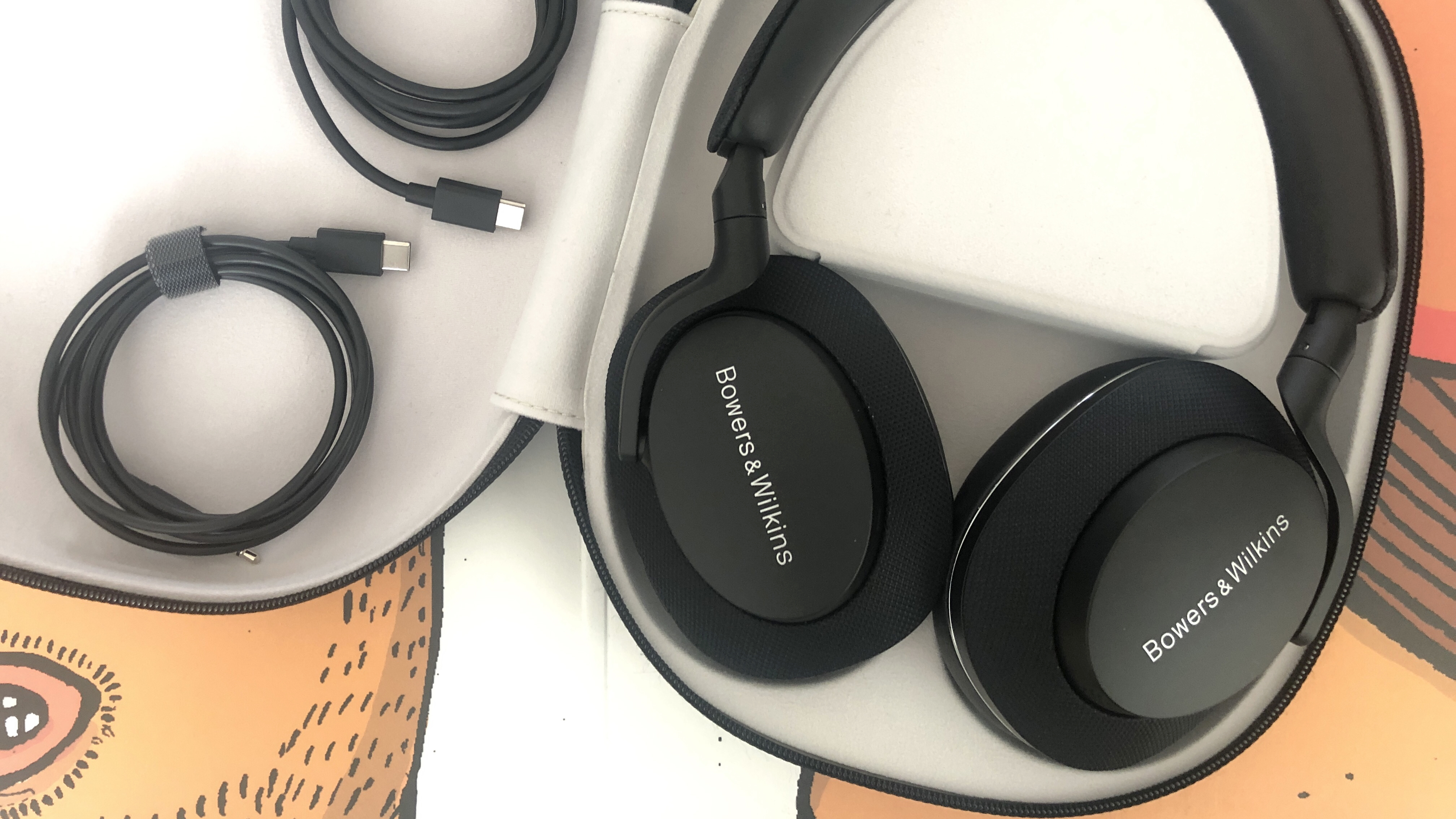
If the PX7 S2 are going to make it to the top of your shortlist then you’ll have to share their priorities: sound quality, and standard of build and finish. Because although this money can buy you more features, more functionality, lighter weight and so on, I don't believe it would buy you more convincing audio performance.
-
+
deft, confident and believable sound
-
+
impressively built and finished
-
+
improved noise-cancellation
-
-
others cancel noise even more effectively
-
-
limited control app
-
-
no touch-controls
Why you can trust T3

If you want your headphones to have a bit of hardcore hi-fi credibility, Bowers & Wilkins is standing by, as we'll explore in this Bowers & Wilkins PX7 S2 review.
In the decade or so the storied loudspeaker brand has been involved in the headphones market, it’s established quite a reputation for impressive audio performance, a luxurious aesthetic, and decent value for money. And now its latest wireless headphone offering is here: the ‘Series 2’ version of the PX7 over-ears that launched a couple of years ago.
The headphones market being what it is – whether you're looking for the best active noise-cancelling headphones or the best wired headphones – it takes a bit more than showing up wearing a dependable brand-name and smelling vaguely (as the PX7 S2 do) of premium materials to be competitive. Bowers & Wilkins understands this, of course, so just how well do the Series 2 PX7 fare?
Bowers & Wilkins PX7 S2 review: Price and availability
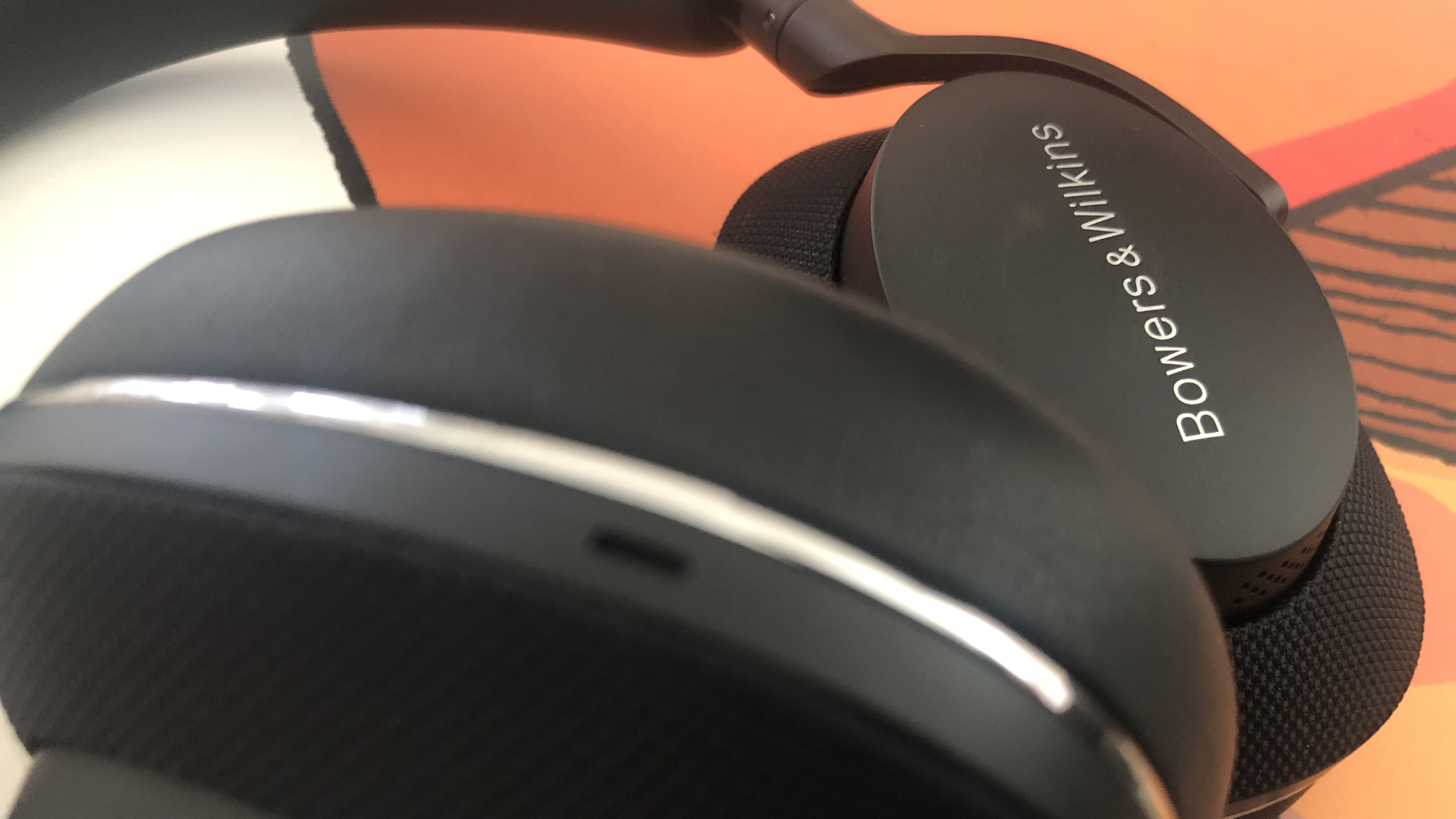
The Bowers & Wilkins PX7 S2 are on sale now, and in the UK they’re priced at £379. In America they’ll set you back $399, while in Australia the asking price is AU$599.
I imagine it’s just a happy accident that these prices are precisely the same as those of the all-conquering Sony WH-1000XM5 that launched just a month earlier than the Bowers' release.
Either way, it puts the PX7 S2 in direct competition with what are to all intents and purposes universally acknowledged as the best all-round headphones currently available (as well as an absolute stack of alternatives from the likes of Bose and Sennheiser that are constantly breathing down the neck of the WH-1000XM5).
Short of calling Tyson Fury’s Mum an unpleasant name, I can’t really think of a more difficult fight Bowers & Wilkins could have picked.
Bowers & Wilkins PX7 S2 review: What's new?
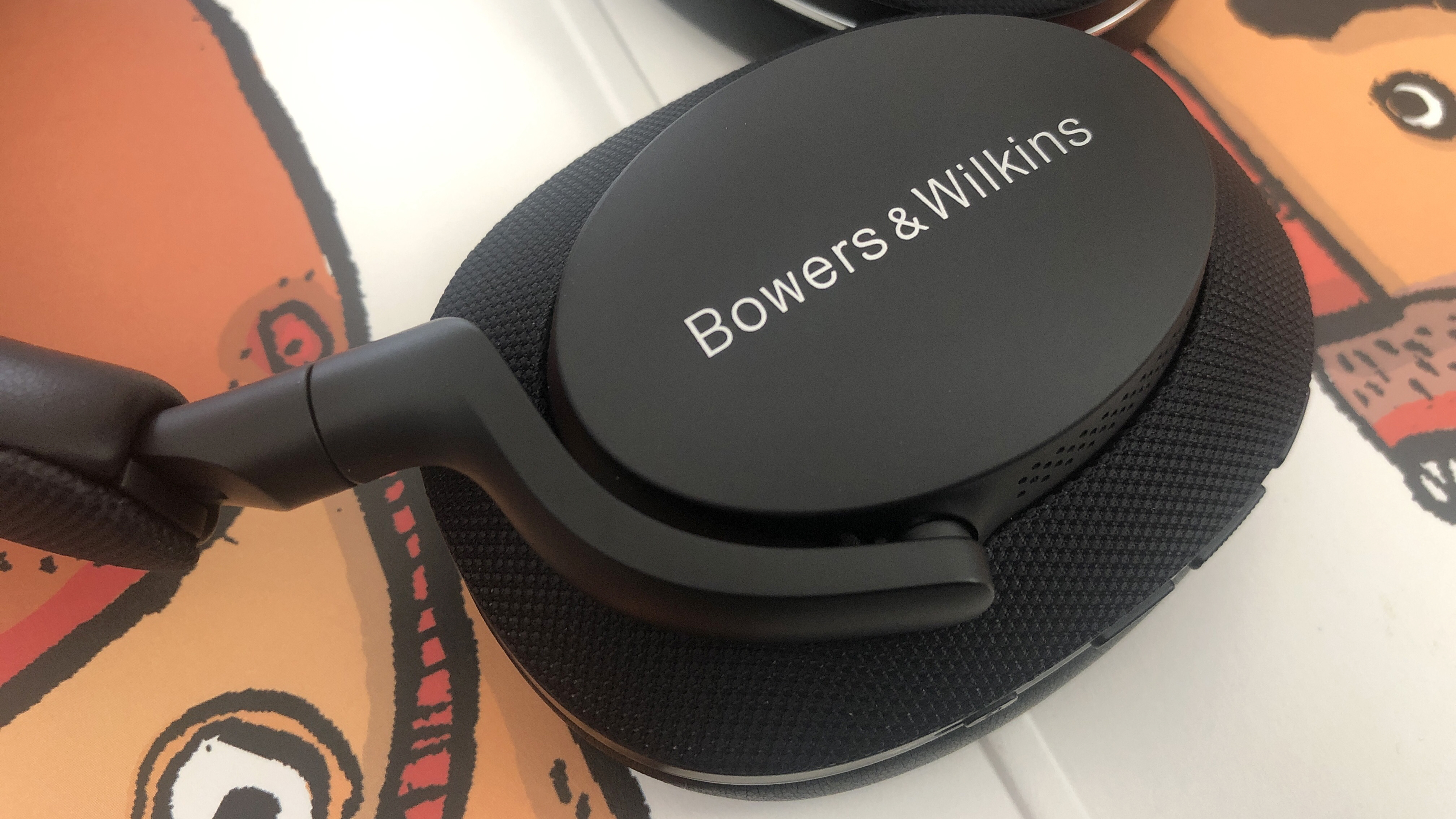
The rulebook remains untorn, of course, but that doesn’t mean Bowers & Wilkins hasn’t had a long, hard think about how this S2 version of its PX7 headphones should be specified. Which means there have been quite a few changes, as also detailed in our PX7 S2 versus PX7 feature.
Some things remain the same, mind you. Battery life, for example is unchanged at 30 hours – but the S2 can go from ‘flat’ to ‘full’ in two hours, rather than the three hours needed by its predecessor. A 15-minute top-up will hold you for seven hours of playback now, rather than the five hours of before.
The PX7 S2 use Bluetooth 5.0 for wireless connectivity, with SBC, AAC and aptX Adaptive codecs supported – which means these headphones are purveyors of 24bit high-resolution audio. Sound is served by a new 40mm full-range free-edge bio-cellulose dynamic driver design, which has a lower total harmonic distortion figures than the driver it replaces, and is now angled inside the earcup in an effort to provide a more immediate, more immersive sound.
Bowers & Wilkins has also redesigned the mics embedded into the earcups in a drive to improve noise-cancellation, ambient ‘pass through’ sound performance and call quality. Active noise-cancellation remains a binary ‘on or off’ system here – some my hanker after the fine-tuning options of Sony or Technics, for example, but it’s my experience that noise-cancellation always ends up at ‘max’ anyway where these systems are concerned. Or, at least, it does if the noise-cancelling is any good.
Bowers & Wilkins PX7 S2 review: Performance and sound quality
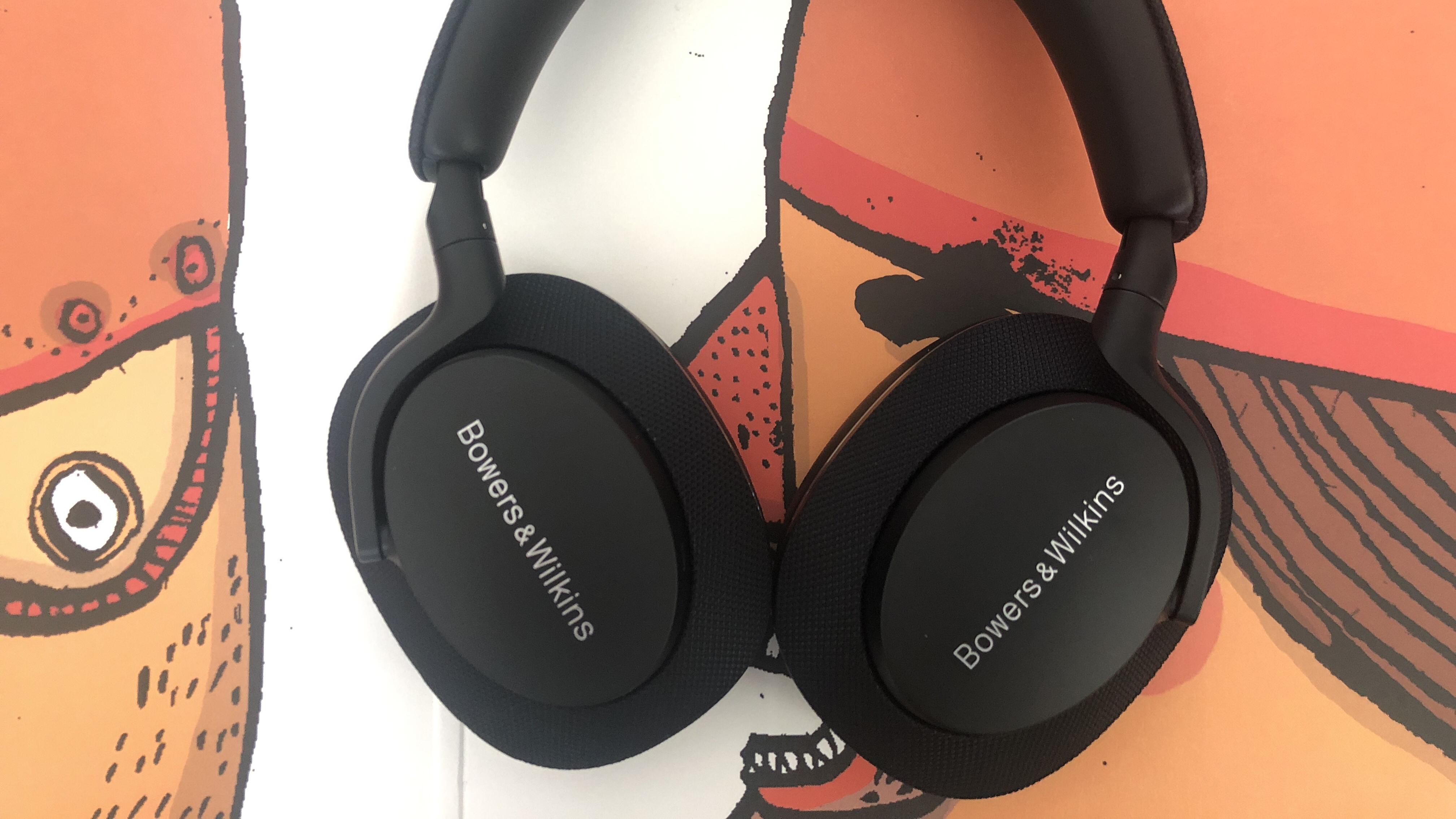
I may as well cut to the chase here: the Bowers & Wilkins PX7 S2 sound outstanding, with occasional deviations into ‘excellent’ and even ‘glorious’.
As far as explaining the entirety of the frequency range from top to bottom, while retaining all of the details, keeping tonality even and convincing, and making the soundstage as big and explicit as possible, the PX7 S2 are among the best sub-£/$400 headphones you can buy. And that’s not the limit of their talents.
So yes, tonality is consistent, and from the (deep, textured) low frequencies to the (politely bright, substantial) top-end the Bowers & Wilkins are entirely even-handed. Detail levels are impressive-going-on-startling, and the PX7 S2 lay out a substantial and well-organised soundstage. Every part of a recording gets a comfortable amount of space in which to do its thing, but everything relates smoothly to everything else and nothing sounds estranged.
The midrange performance, though, is where the Bowers & Wilkins keep their truly stellar talents. Singers are given every possible chance to express themselves by the Px7 S2 – the headphones carry so much information that a vocalist can’t help but sound like a characterful individual, able to express emotion and attitude explicitly.
When it comes to rhythmic expression the Bowers & Wilkins don’t lead the pack, but they’re very competent nevertheless. They can generate a degree of sinuousness to their presentation if the music demands it and, while they don’t quite have the stern rhythmic control demanded by the more intense end of EDM, they’re far from impassive. And it’s a similar story where both the broad and fine dynamic elements of a recording are concerned – the PX7 S2 have more than enough about them to make the harmonic changes, as well as the changes in levels of attack, plain.
The changes Bowers & Wilkins has made to its active noise-cancelling circuitry seem successful too. While it’s true that some similarly priced alternatives can deal with even more external sound than the PX7 S2, these headphones are no slouches. And they can handle the bulk of ambient noise without leaving any trace of how hard they’re working, or altering their sonic characteristics in any way.
‘Passthrough’ works well too, external sounds given a judicious boost of volume but not sounding in any way unnatural. And it’s a similarly accomplished story where call quality is concerned.
Bowers & Wilkins PX7 S2 review: Design and usability
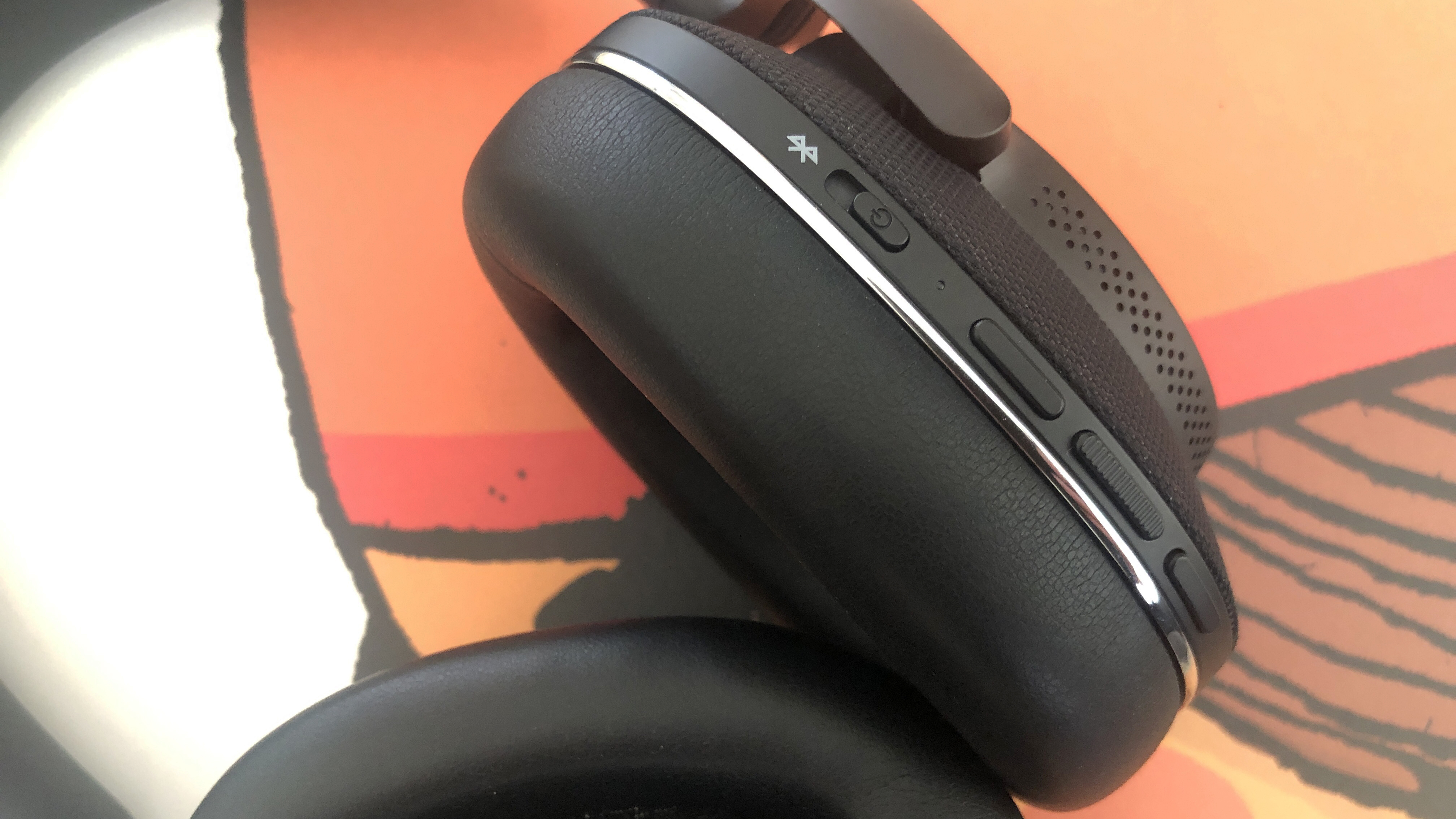
Just as is the case where performance is concerned, Bowers & Wilkins understands its strengths and plays to them. Sony can have the eco-credibility and the vanishingly light weight – the PX7 S2 are about carefully specified materials, carefully assembled and an aesthetic that’s just the right side of opulent.
Where they contact the wearer, the PX7 S2 are mostly memory foam-filled leather – and very soft and aromatic it is too. Where they don’t, these headphones are hard-wearing, tactile and flawlessly applied fabric or similarly high-quality plastic. Build quality seems impeccable, and thanks to a reworking of both the headband arrangement and its clamping force, the Bowers & Wilkins PX7 S2 are comfortable to wear even for the equivalent of a long-haul flight. Yes, at 307g they’re almost 60g heavier than Sony’s flyweight WH-1000XM5 – but once they’re in situ they really don’t feel it.
As far as control goes, the PX7 S2 don’t have the wide-ranging options of some rivals, but what they do have is very nicely implemented. Physical controls extend to buttons for volume up/down, play/pause, skip forwards/backwards and power on/off/Bluetooth pairing on the edge of the right earcup, just above the USB-C socket.
There are USB-C/USB-C and USB-C/3.5mm cables in the tidy, nicely finished carry-case, because the USB-C socket can be used for both power and data transfer.
There’s a button on the left earcup, too, which can be defined as either wake voice assistant (that’s your source player’s native assistant, you understand – there’s no built-in voice assistant here) or scroll through noise-cancelling options (which are on, off or passthrough for amplified ambient sound).
Choosing the function of that button is done in the Bowers & Wilkins Music control app (for iOS and Android). I like this app – it’s as music-centric as the name implies, it’s clean and stable, and it doesn’t overload you with options. In fact, apart from defining the function of the left-side button and accessing some EQ adjustment, there really aren’t any options. Some will undoubtedly prefer the deity-like control they get with Sony’s Headphones app for its headphones instead, of course.
Bowers & Wilkins PX7 S2 review: Verdict
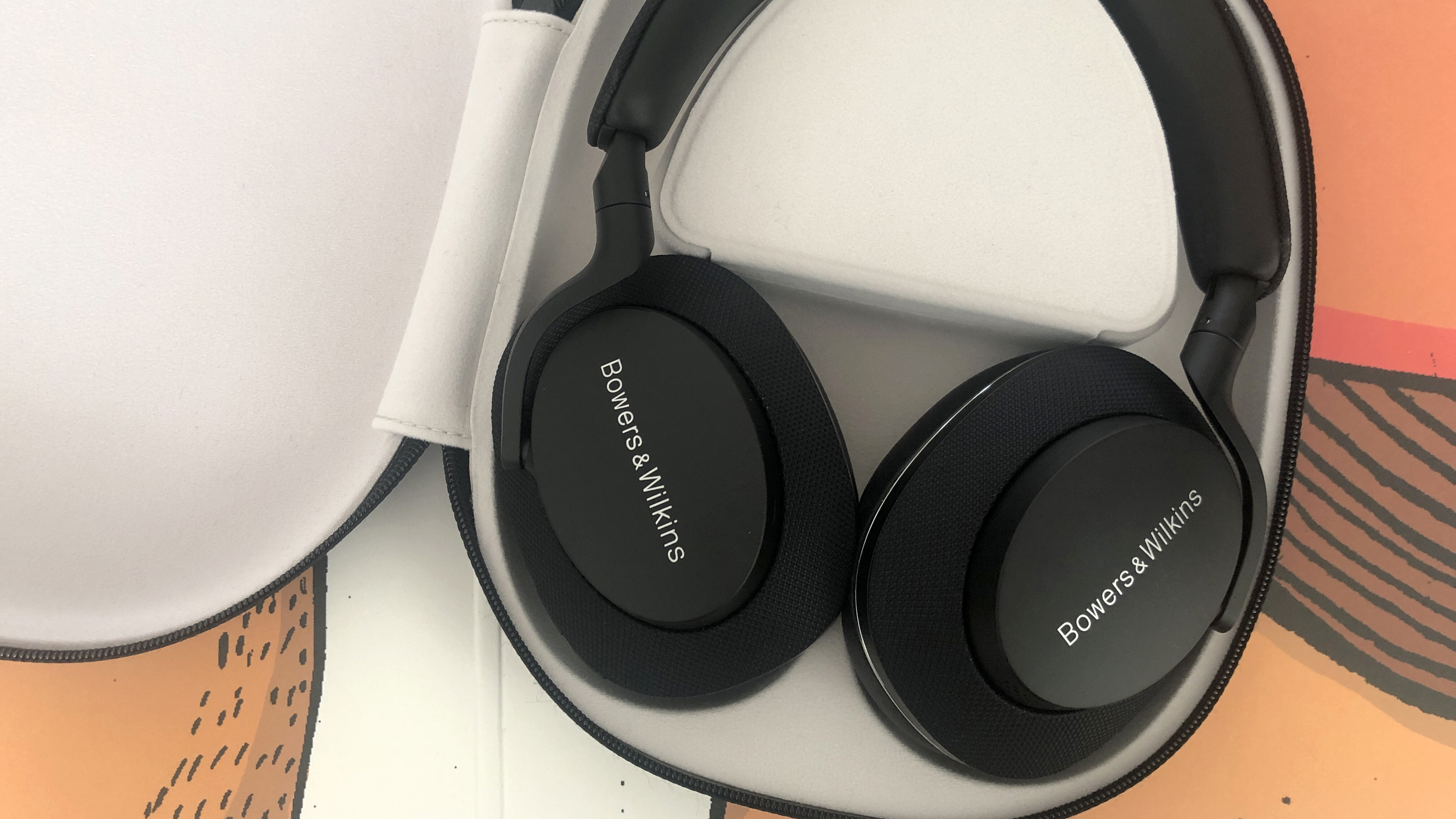
Brand credibility, backed up by performance. That’s the Bowers & Wilkins PX7 S2 in a sentence. And provided you insist on the best-sounding wireless headphones this money can buy, and give less weighting to, well, their weight (as well as other stuff like adaptive noise-cancelling, touch-controls and so on), you absolutely have to hear a pair before parting with any cash.
Because for the PX7 S2 to make it to the top of your shortlist you’ll have to share their priorities: sound quality first and foremost, along with the exceptional standard of build and finish. Although this money can buy you more features and functionality elsewhere, I don't believe it would buy you more convincing audio performance. Because the PX7 S2 sound absolutely stellar.
Also consider
If it’s all-rounders you want, the Sony WH-1000XM5 are the all-roundest of the lot. They give away the last smidgen of audio quality to the Bowers & Wilkins, but they’re ahead when it comes to weight (assuming ‘light’ means ‘best’), noise-cancelling (just a touch), extended functionality and eco-credibility (a fair bit). But if it’s the best-sounding wireless headphones this money can currently buy that you want then, well, go back to the top of the page and start reading again.
Sign up to the T3 newsletter for smarter living straight to your inbox
Get all the latest news, reviews, deals and buying guides on gorgeous tech, home and active products from the T3 experts
Simon Lucas is a freelance technology journalist and consultant, with particular emphasis on the audio/video aspects of home entertainment. Before embracing the carefree life of the freelancer, he was editor of What Hi-Fi? magazine and website – since then, he's written for titles such as Wired, Metro, the Guardian and Stuff, among many others. Should he find himself with a spare moment, Simon likes nothing more than publishing and then quickly deleting tweets about the state of the nation (in general), the state of Aston Villa (in particular) and the state of his partner's cat.
-
 Ninja’s new indoor grill can cook 10 burgers at a time – but you might not get it
Ninja’s new indoor grill can cook 10 burgers at a time – but you might not get itNinja supersizes its Sizzle Pro indoor grill
By Bethan Girdler-Maslen Published
-
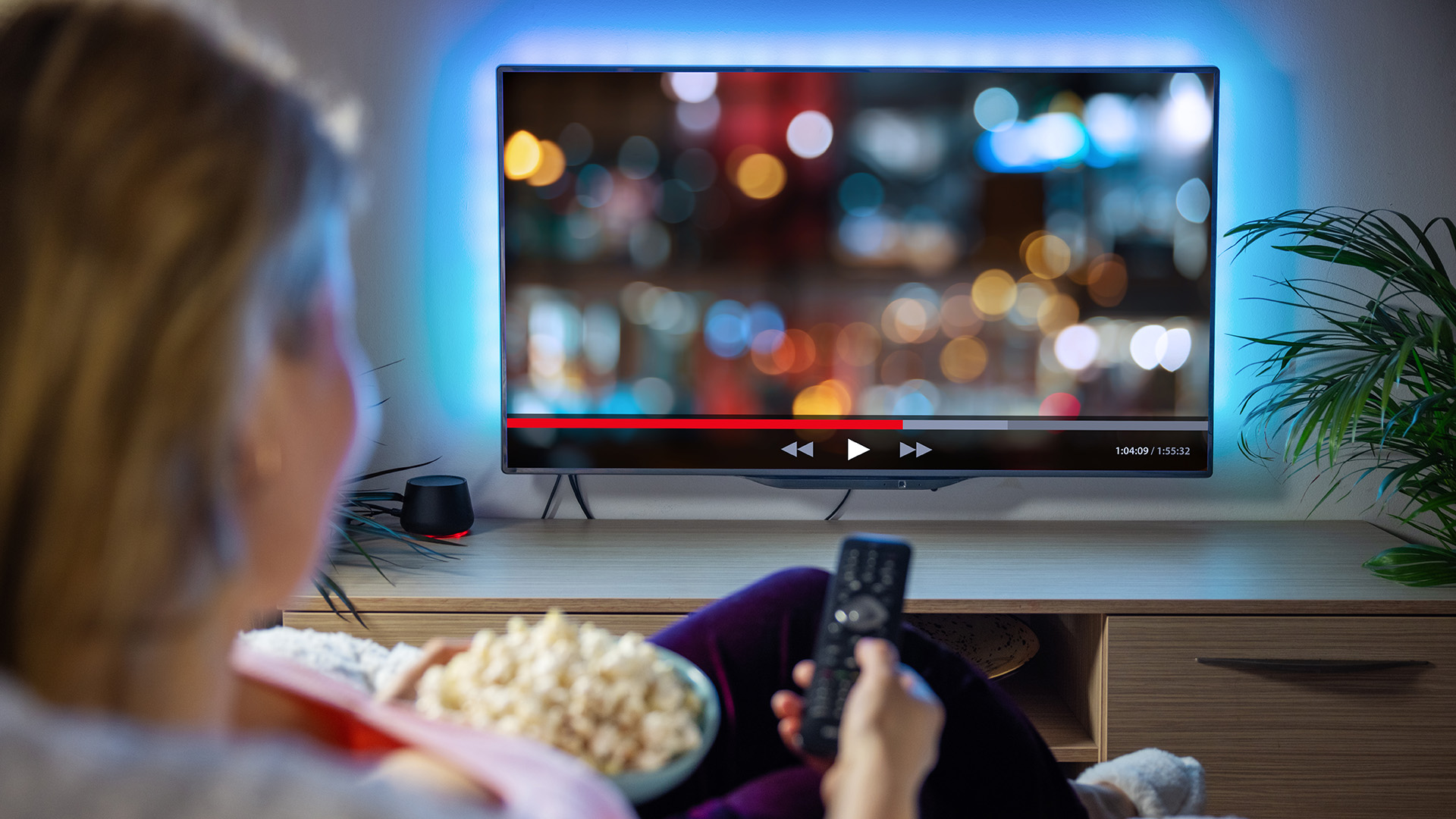 What new TV Licence rules mean for Netflix and Prime Video subscribers
What new TV Licence rules mean for Netflix and Prime Video subscribersHint: nothing yet, but that may change soon
By Britta O'Boyle Published
-
 The North Face and UNDERCOVER are back to zen-slam the trails with SOUKUU Season 4
The North Face and UNDERCOVER are back to zen-slam the trails with SOUKUU Season 4Meditative mountain gear? You better believe it – SOUKUU SS25 is part trailwear, part philosophy, and all fire.
By Matt Kollat Published